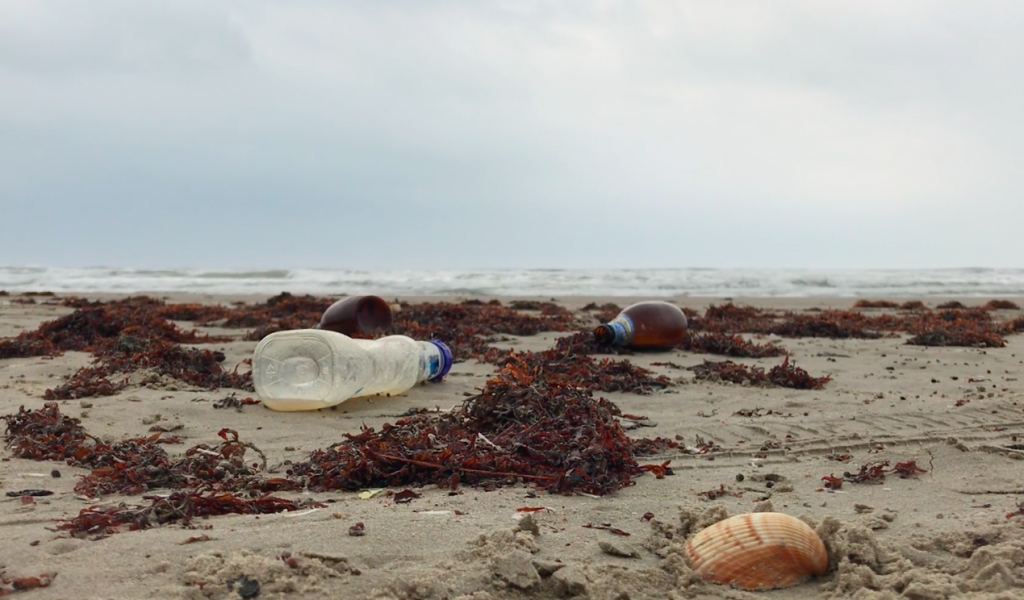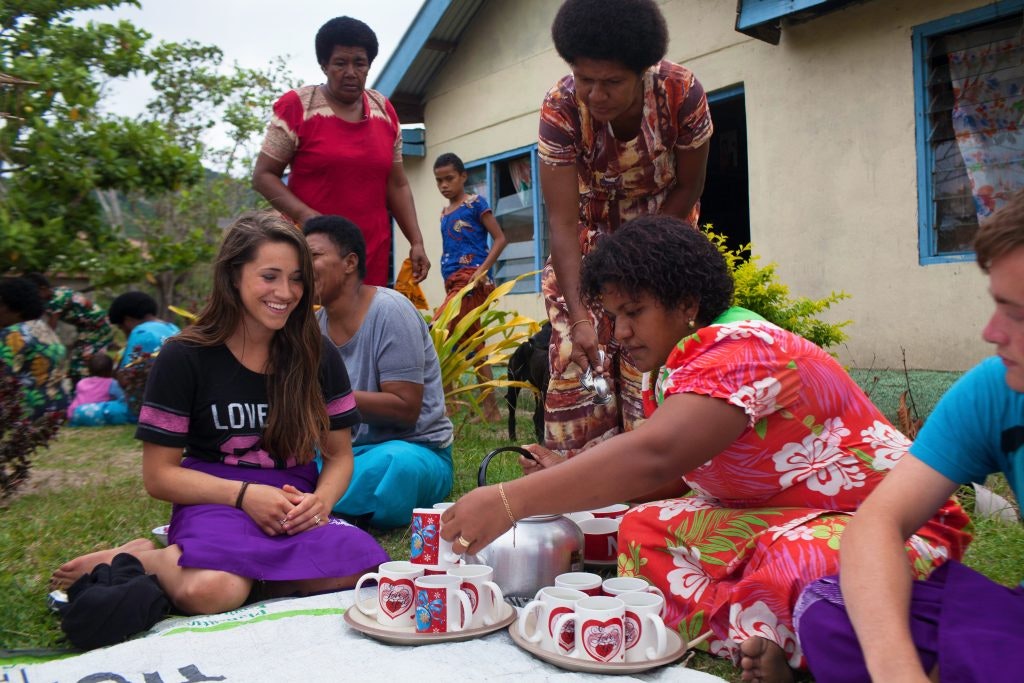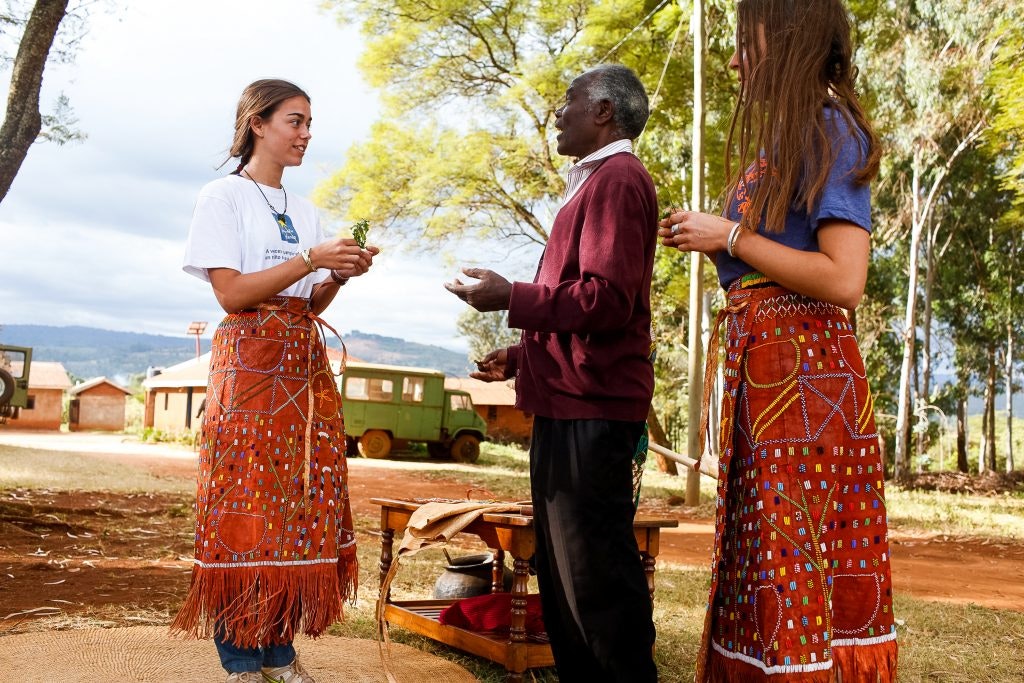My best friend loves staying at luxury resorts and spas and dining at Michelin-starred restaurants. When I travel, I try to seek responsible travel experiences like staying in traditional lodgings, visiting local markets and trying local food.
Giving back to the communities while traveling makes the experience so much more rewarding. While tourism is often beneficial for the local economies, mass tourism tends to create overtourism.
To mitigate the negative economic, social, and environmental impacts, the World Tourism Organization (UN Tourism) has established a global code of ethics for tourism, providing a framework for responsible travel and sustainable tourism. Let’s take a closer look at what responsible travel means.
Topics we’ll discuss in this article:
- What is Responsible Travel?
- Why Does Responsible Travel Matter?
- What Makes You a Responsible Traveler?
- How to Be a Responsible Traveler?
- What is Sustainable Travel?
- What is Sustainable and Responsible Travel?
- What are the Three Types of Sustainable Travel?
- How Do You Travel Responsibly and Sustainably?
- What is the Greenest Way to Travel?
- What is Another Word for Environmentally-Friendly Travel?
- Why is Sustainable Travel Important?
- Do People Want Sustainable Travel?
- Is Sustainable Travel a Trend?
- What Type of Tourism is Most Sustainable?
- Why is Sustainability a Journey Not a Destination?
What is Responsible Travel?

Students in Costa Rica helping to protect baby sea turtles.
Responsible travel is a comprehensive approach to travel for individuals to ensure that their journeys contribute positively to themselves, local communities, and the current and future economic health of tourism destinations.
It means being mindful of the direct and indirect impacts we have when we travel. It means being aware of how our actions affect the destination, the local communities, the wildlife, and the natural environment. Responsible travel is a commitment to leaving a positive legacy wherever we go and minimizing any negative impacts.
Why Does Responsible Travel Matter?
Responsible travel matters because, as a traveler, you wield significant influence in shaping the experiences of fellow travelers and host communities. Your actions today can have lasting consequences, especially in the tourism sector affected by climate change, impacting not only the present but also the ability of future generations to enjoy travel experiences akin to your own. Responsible travel is also crucial because it lies at the heart of global sustainable tourism or sustainable travel.
Related: Guide to the world’s most pressing problems and challenges

What Makes You a Responsible Traveler?
What makes you a responsible traveler is doing your research, planning in advance, and being mindful of your economic, social, and environmental impacts during your travels. Through your actions, you should strive to minimize negative impacts such as environmental degradation while maximizing the social and economic benefits for host communities. You recognize the role of tourism in sustainable tourism development and work towards promoting sustainable tourism policies.
How to Be a Responsible Traveler?
In 2005, the World Tourism Organization (UN Tourism) published Tips for a Responsible Traveler. The following tips are practical steps to make your travel as rewarding and positive as possible for you and the local people you visit.
- Respect the Local Culture and Cultural Heritage Sites: Learn about the cultural norms, traditions, and etiquette of the places you’re visiting. Respect local customs, dress codes, and follow visitor guidelines and regulations when visiting historical sites, monuments, and cultural heritage sites. Avoid damaging or removing artifacts, graffiti, or littering, and support conservation efforts to preserve these sites for future generations.
- Minimize Environmental Impact: The tourism industry is responsible for almost one-tenth of global greenhouse gas emissions worldwide. Reduce your carbon footprint by choosing eco-friendly transportation options, such as walking, biking, or using public transportation. Conserve resources by minimizing waste such as avoiding single-plastic items, conserving water and energy, and supporting businesses that prioritize sustainability.
- Support the Local Economy: Spend money at locally owned businesses, such as restaurants, hotels, and shops, rather than multinational chains. Purchase locally made souvenirs and products to support local artisans and entrepreneurs.
- Engage Responsibly with Wildlife: Refrain from activities that exploit or harm wildlife, such as participating in activities that involve captive animals or purchasing products made from endangered species. Support wildlife conservation efforts and responsible ecotourism initiatives.
- Promote Fair Tourism Practices: Advocate for fair wages, working conditions, and opportunities for local residents in the tourism industry. Support community-based tourism initiatives that empower local communities, promotes local culture, and promote sustainable development.
- Be Mindful of Your Impact: Consider the economic, social, and environmental consequences of your travel choices and actions. Choose accommodations, activities, and tour operators that prioritize responsible and sustainable practices.

Discover how Cate Brown, our 2015 Impact Ambassador and Global Fellow for the Rustic Pathways Foundation integrated responsible travel practices during her trips to Fiji and Southeast Asia.
What is Sustainable Travel?
Sustainable travel is the collaborative effort of stakeholders in the travel industry to ensure long-term environmental, social, and economic sustainability. It involves tourism as a factor for sustainable development in host countries and communities, fostering economic development, community well-being, and cultural and natural preservation.
What is Sustainable and Responsible Travel?
Sustainable and responsible travel is traveling in a way that ensures the long-term sustainability of travel activities and destinations, being mindful of the impact of an individual’s actions on the natural environment, local communities, and cultures, and making choices that minimize harm and maximize positive contributions to the world.
What are the Three Types of Sustainable Travel?
The three types of sustainable travel are:
- Economic: This type of sustainable travel aims to ensure that the industry generates long-term economic benefits for local communities and businesses. This includes supporting local enterprises, creating employment opportunities, and contributing to the overall economic development of the destination while ensuring that resources are managed efficiently and fairly.
- Social: This type of sustainable travel focuses on the well-being and empowerment of host communities, ensuring that the travel and tourism industry benefits them positively. It involves respecting and preserving local cultures, traditions, and ways of life, as well as promoting social inclusivity and equitable distribution of tourism benefits.
- Environmental: This type of sustainable travel involves minimizing the negative environmental impacts of travel and tourism activities. It includes reducing carbon emissions, conserving natural resources, protecting biodiversity, and minimizing pollution and waste generation.




